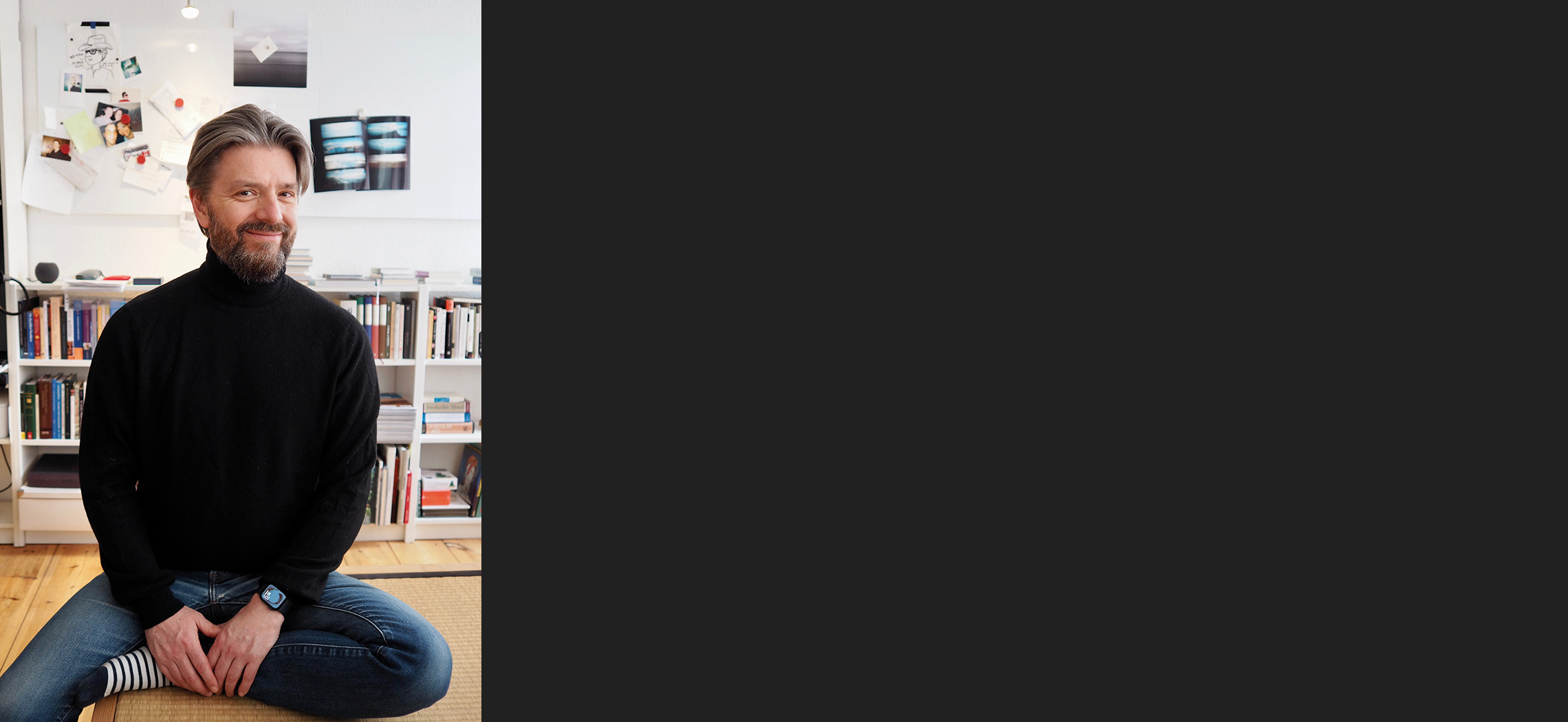A Portrait Of Director of Photography Florian Hoffmeister
Florian Hoffmeister © Mona KinoIn 2005, Florian Hoffmeister faced a decision – whereby the choice ought to have been clear. His directorial debut 3° colder had just won the award for best debut film at Locarno Film Festival. The German Export Union had enquired whether he would like to take it to Moscow as well, opening the film festival there. But there was a second enquiry.
Two years before this, Hoffmeister, who had studied directing and cinematography at the German Film and Television Academy in Berlin, had shot the British docudrama The Hamburg Cell for director Antonia Bird. And now, she was asking whether he would like to take on the camera work for her next project: “I was at a crossroads,” the now 54-year-old recalls. “Did I want to go to England, or continue directing in Germany?” Against the apparent logic for his career, he decided in favour of the former. “Back then, streaming didn’t exist and it was much harder to launch an international career from Germany.”
Today, it is obvious he did make the right decision. In the years that followed, he was to find successful images for an astonishing range of projects – from Deep Blue Sea by the old master Terence Davies to the Johnny Depp comedy Mortdecai directed by David Koepp. He triggered an international sensation with his camera work for Todd Field’s Tár, which earned him an Oscar nomination. Most recently, he was highly praised for the cinematography of the fourth season of True Detective, and he is currently due to start shooting Jay Roach’s remake of The War of the Roses with Benedict Cumberbatch and Olivia Colman. At the time, he could not have known how his career would develop. But working on The Hamburg Cell he had discovered qualities that tipped the scales that way: “The level of research, and the desire to make a statement and be creative were huge. I also found an attitude to production there which differed from what I knew in Germany.” In other words: “The resources I asked for were never questioned at an initial meeting. The production managers never wanted to know: Why do you need this? Because the aim was to make the film as good as possible. You never came up against people misinterpreting your artistic vision as personal ambition.”
The collaboration with Terence Davies, which actually came about by chance, was a formative experience: “I learnt the courage to express myself”. This was also because the filmmaker deliberately realised only a few takes: “If you are shooting 14 takes a day, a maximum of three times, then everything has to hit the mark. That was totally exhausting.” He experienced something very similar with Tár - a project so challenging that he says he had been “waiting a long time” for it: “For example, we had this 12-minute planned sequence to which we didn’t shoot any alternatives. That courage inspires you as a co-worker.” Another attraction of Tár was that for the first time in 15 years, he was able to film his home town, Berlin, for a movie.
The range of technical possibilities, including AI, that has emerged in the digital age seems like a great opportunity to him: “It allows us to get back to the basic idea behind making a film. In other words, I can focus on what I want to say and how I want to say it, and not on asking whether and how it can be realised technically.” Florian Hoffmeister, who “fortunately” completed his full directing and cinematography training in analogue, says he still works “with the same consistency and discipline that you needed with celluloid.” He adds: “Even though I am filming digitally, I try to make a lot of decisions very early on.” He “doesn’t want to get involved” in discussion about digital and analogue cinematography because he thinks it is outdated: “A painter doesn’t commit to using only oil paint.” What he is looking for in his work is collaboration with a certain quality of filmmaker: “There always needs to be a signature and a special form of expression.” Effectively, he wants to rejoin the directors, as he is currently preparing his own project - though he does not want to reveal much about it yet. What is certain, however, is that he will be returning to his earlier career plans, having made his last film as a director in this country in 2016: Die Habenichtse. “It was a great experience shooting in Berlin with Todd Field, seeing the city through the eyes of an outsider.” Thematically, he is moved by German social history during the 1970s.
Although he is still interested in working on series after experiences such as True Detective or the Apple TV+ series Pachinko – possibly even as a director – he firmly believes in the strengths of the big screen: “Phenomena such as ‘Barbenheimer’ show that cinema has withstood the stress test of streaming. That shared experience is still unbeatable.”
Rüdiger Sturm

